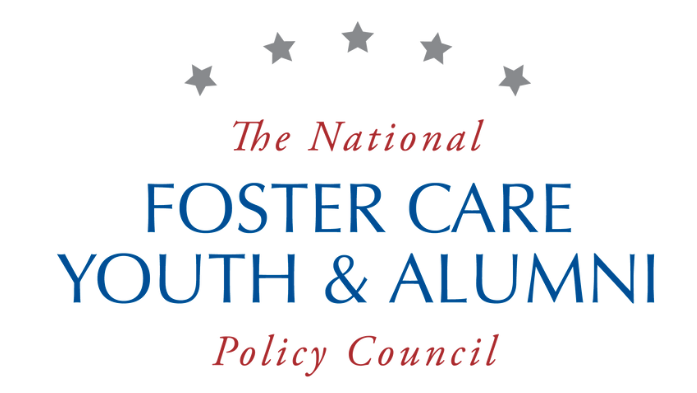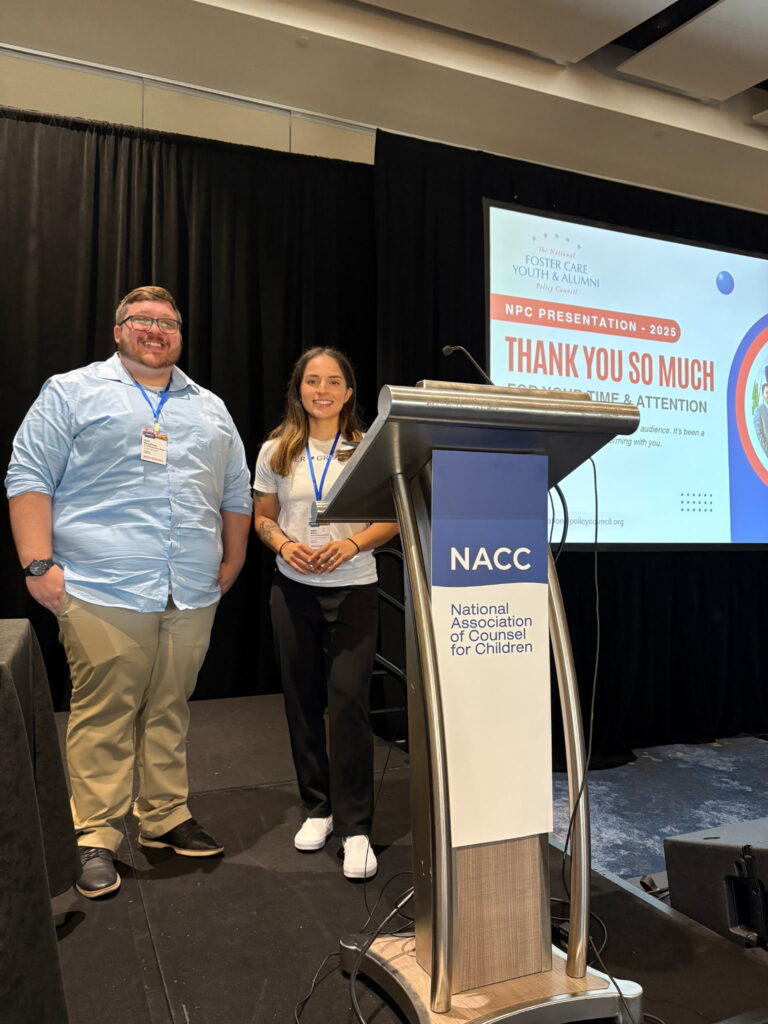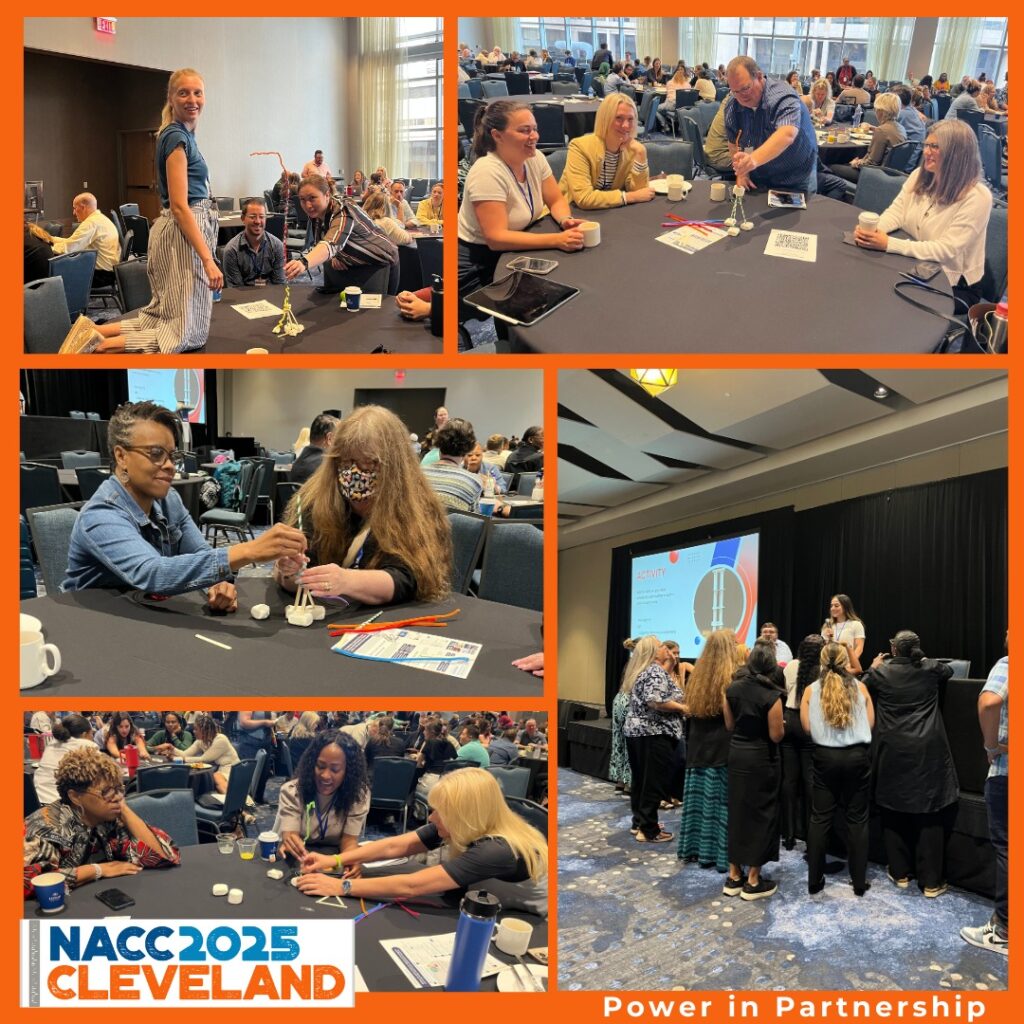09 Sep Power in Partnership: Lessons from the NACC Conference 2025
The National Association of Counsel for Children (NACC) Annual Conference is the nation’s leading gathering of child welfare law professionals and intersecting fields. Each year, it brings together attorneys, advocates, lived experts, and system leaders to exchange ideas, build collective knowledge, and advance justice for children and families.
This Year’s theme, “Catalysts for Change: Innovating Advocacy through Power Sharing and Transformational Leadership,” underscored the urgent need to rethink traditional advocacy models, share power more intentionally, and harness the creativity and lived expertise of those most impacted by child welfare systems.

The National Foster Care Youth & Alumni Policy Council (The Council) was proud to contribute to this important conversation, represented by Kodi Baughman (FCAA) and Isabel Stasa (Council Member). Their session, grounded in the Council’s roundtable insights and peer-to-peer leadership model, highlighted why centering lived expertise is not only transformative but essential to achieving systemic change.

Harnessing Peer-to-Peer Leadership
Drawing from the Council roundtables of 2024 on mental health, lifelong belonging, and thriving post-foster care, Kodi and Isabel shared how the Council translates lived experience into actionable policy priorities. They emphasized the Council’s collective leadership model, where alumni co-develop recommendations, review each other’s work, and co-present policy proposals to national partners.
Kodi reflected on his own journey, from a community advocate to a national leader, as an example of why systems must create pathways for lived experts to hold real power. Kodi went from being a council member to a FCAA Partner Council Staff.
“Great policies alone don’t guarantee impact,” he reminded the audience. “It takes shared power and authentic collaboration to turn policy into practice.”
The Tower-Building Challenge: A Lesson in Inclusion
Isabel brought these themes to life with an interactive exercise. Each table was given a limited set of supplies—paper, tape, and paperclips—and tasked with building the tallest, most stable structure possible. The materials symbolized the limited resources often present in child welfare, while the challenge itself tested whether participants could ensure every voice at the table was included.
After the activity, participants completed a survey (173 responses total). The results spoke volumes:
–Did you feel like you had a voice and choice in the construction?
87.3% said yes, 11% said a little, 1.7% said no.
–Do you feel your group’s structure was successful?
77.5% said yes, 22.5% said no.
–Would you feel comfortable telling your team if you weren’t being heard?
87.3% said yes, 12.7% said no.

The activity mirrored the realities of systems change. Most participants felt included, but the fact that some did not is a reminder: in child welfare, inclusion cannot be assumed, it must be intentional.
From Reflection to Action
Isabel tied the lessons back to the Council’s equity-centered priorities:
- Collaboration builds stronger foundations.
- Diverse perspectives fuel innovation.
- Shared power produces more just outcomes.
Participants left with concrete tools to carry forward: how to design peer-led decision-making processes, build partnerships that elevate lived expertise, and embed equity and belonging across organizations.
Kodi closed with a challenge: “Reflect on how you shared space. Did you involve all voices? What could you have done differently? How will you move differently in your practice moving forward?”
These are the same questions that child welfare leaders must ask themselves if they are serious about dismantling systemic barriers.
Moving Forward
The NACC conference reinforced that change is not built in isolation, but co-creation. Thanks to leaders like Kodi Baughman and Isabel Stasa, attendees left with a clearer vision for what it looks like to center lived expertise, not as a symbolic gesture, but as a guiding force for sustainable, meaningful reform.
As the Council continues its work, these lessons remain central: inclusion strengthens outcomes, diversity fuels innovation, and shared power creates lasting impact.





No Comments